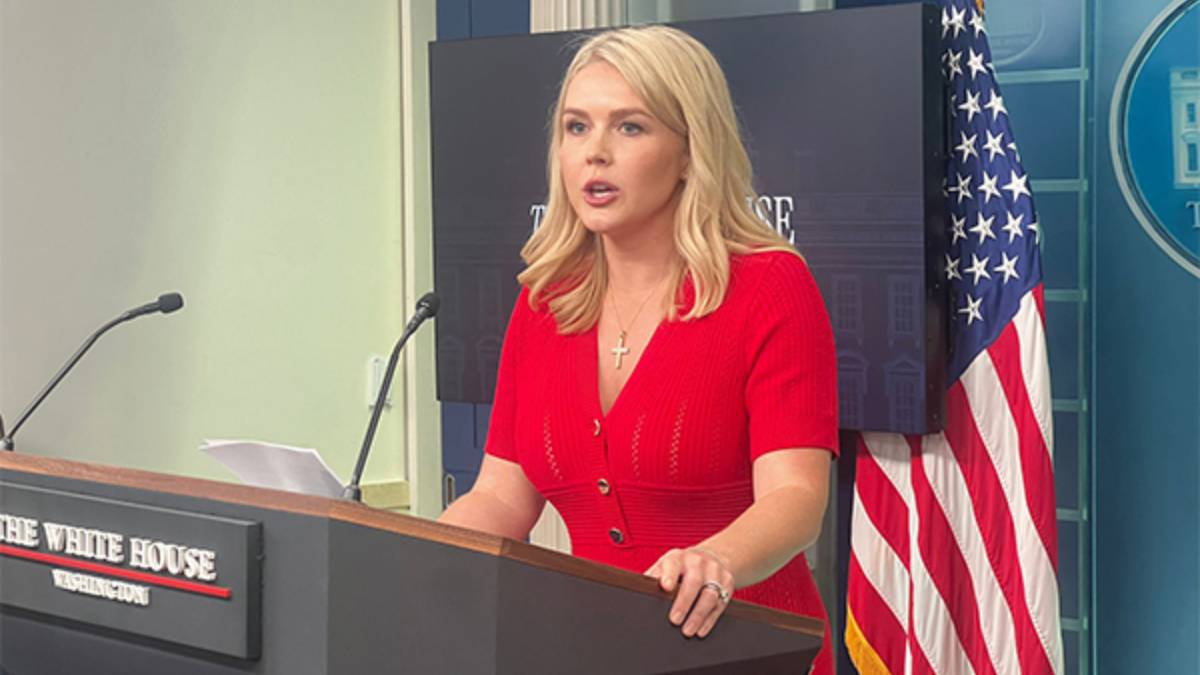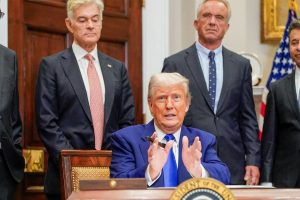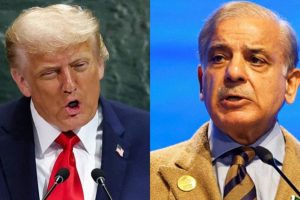The White House has pledged to take its legal fight over former President Donald Trump’s tariff policies to the U.S. Supreme Court, following a federal court decision that struck down many of the administration’s import duties. The move signals a fierce response to what the Trump administration has called “judicial overreach.”
At a press briefing on Thursday, White House Press Secretary Karoline Leavitt declared, “We will win this battle in court,” adding that the administration is actively working to “tackle rogue judges” who, she claimed, are interfering in core executive functions.
The legal battle stems from recent rulings, including one by the U.S. Court of International Trade, which found that President Trump had exceeded his legal authority in imposing broad tariffs on a wide range of imported goods. The administration responded by filing an emergency appeal and has petitioned the Court of Appeals for the Federal Circuit to halt the lower court’s ruling from taking effect.
“This is judicial overreach, plain and simple,” Leavitt said, defending the tariffs as “legally sound” and “long overdue” measures aimed at correcting trade imbalances and protecting national interests. She asserted that Trump’s approach had already brought “tens of billions of dollars” in tariff revenues and repositioned the U.S. in global trade talks.
Leavitt also sought to reassure international partners about the U.S.’s continued commitment to negotiations. She noted that President Trump had spoken with Japanese Prime Minister Shigeru Ishiba on Thursday to discuss tariff issues, and that top officials—Secretary Lutnick, Secretary Bessent, and Ambassador Jamieson Greer—were engaged with global counterparts to reaffirm diplomatic channels.
“Countries around the world have faith in the negotiator-in-chief, President Donald J. Trump,” Leavitt added. “They understand how ridiculous this ruling is, and they know we will prevail.”
The court rulings have been celebrated by small businesses and state governments that challenged the tariffs, many of which were imposed under emergency economic powers. Critics argue the measures hurt domestic companies reliant on imported goods and exceeded executive authority.
Meanwhile, a U.S. delegation is scheduled to visit India on June 5–6 for a new round of discussions on a Bilateral Trade Agreement (BTA). The proposed agreement is seen as a potential breakthrough in India-U.S. economic relations, opening new paths for investment and commerce.
However, not all voices are optimistic. Ray Vickery, former U.S. Assistant Secretary of Commerce for Trade Development, criticized what he described as the Trump administration’s “bullying approach,” warning it could derail progress with India. “One hopes a freer trade arrangement will emerge, but it won’t happen through intimidation,” he told ANI.
Vickery also challenged the administration’s core rationale for the tariffs, arguing that U.S. trade deficits stem more from internal economic behavior than from unfair practices abroad. “The Trump administration misunderstands trade deficits. They’re not solely caused by other countries, but also by the U.S.’s own saving and spending habits,” he said.
Tensions between India and Pakistan also made headlines, with Trump claiming credit for brokering peace. Indian officials, however, clarified that the cessation of hostilities was the result of direct military-to-military negotiations, following India’s Operation Sindoor, which targeted nine terror infrastructure sites in Pakistan and Pakistan-occupied Jammu and Kashmir.
As the administration prepares for a Supreme Court showdown, the outcome could shape the future boundaries of presidential power in trade policy—and define Trump’s economic legacy.





